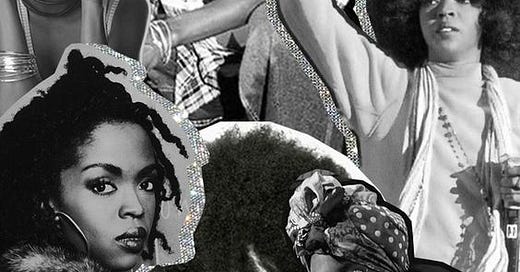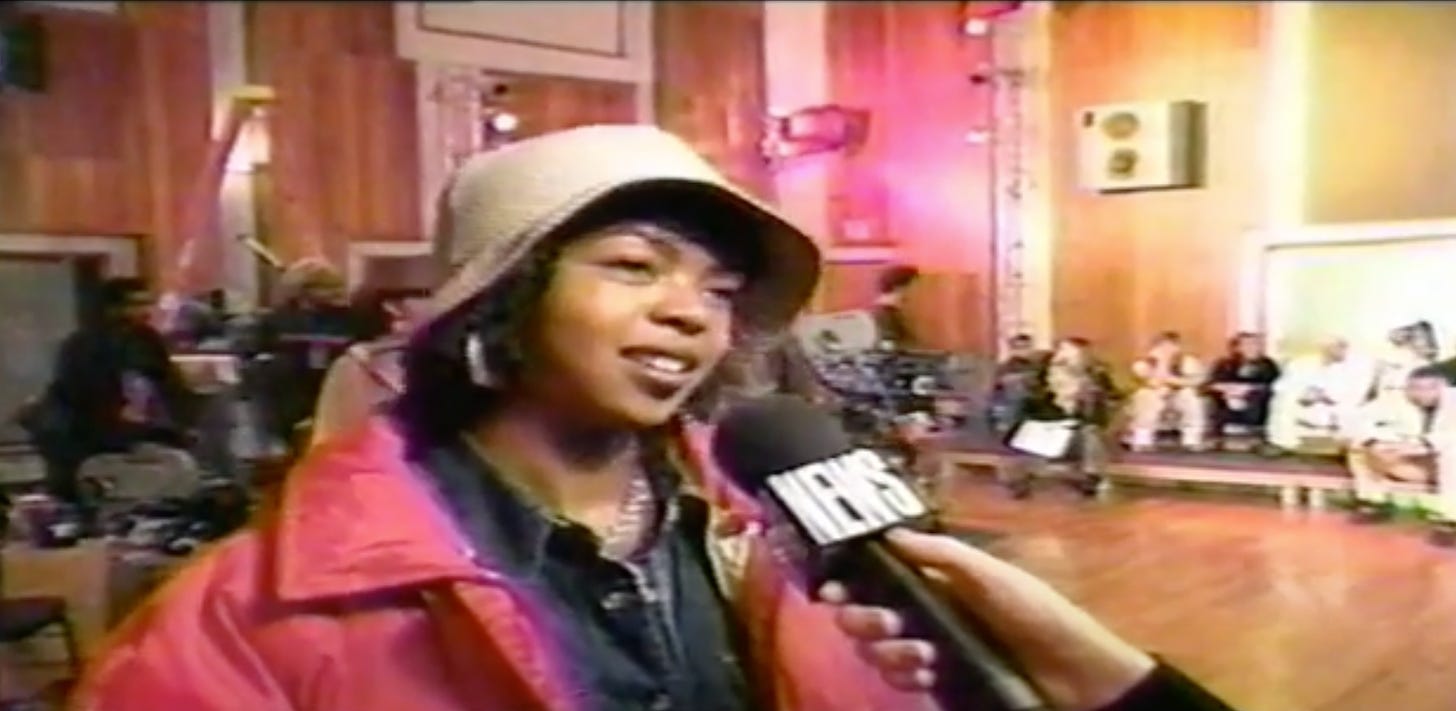Be weird. Be a holy (m)other.
In an increasingly sterile world, motherhood is intimidating—that is, if one's priority is conformity. But what if one's priority isn't to fit in?
It’s common to talk about moms like they’re saints. Slightly daft, overworked, pitiable saints with frown lines and self-inflicted scars. Especially once the count of progeny exceeds three, eyebrows raise and mouths gape. “Oh the sacrifice,” people say. Or, “Being a parent is the hardest job in the world. I could never.”
Many of these statements are genuine and kindly meant. But behind them lurks the assumption that motherhood, much like wearing a hair shirt or living atop a pillar, is a discipline suitable only for the holiest of the holy, the weirdest of the weird.
None of us would exist without a mother. How could motherhood, ubiquity of ubiquity, ever become weird?
Is Motherhood Weird?
The modern default is childlessness. It requires an active push to become parents, especially multiple times over. In this climate, having kids is no longer just “something one does.” It’s a countercultural statement.
Well, in the context of our culture, it is. American birth rates are in steady decline. In 2021, we reached a new low of 1.66 children per woman. (65 years ago, it was 3.5.) In 2020, the ratio of births to abortions was 80:20, and according to 2022 census data, zero-child families are now the norm.1
Why is this?
Part of it, no doubt, is that kids no longer provide much in the way of material incentives. In traditional pantheistic cultures, the fertility of the womb was inextricably linked to the fertility of the land. In modern America, with child labor a criminal offense, and agrarianism a thing of the past, people no longer benefit materially from large families.
Birth has also become highly optional in the age of abortion. Due to the easy accessibility of contraceptives and abortifacients, kids are increasingly regarded either as “mistakes” or as the manufactured result of “trying” (stopping the pill, removing the IUD, or even IVF).
Thus the modern default of childlessness. It requires an active push to become parents, especially multiple times over. In this climate, having kids is no longer just “something one does.” It’s becoming a countercultural statement.
So, what motivates people to actively push back against the default of sterility?
In her recent book, Hannah’s Children, economist Catherine Ruth Pakaluk interviewed over fifty American women with 5+ kids to find out why they had defied the birth dearth. It turned out it was never about costs. What set these women apart was not social class, ethnicity, or any other straightforward demographic measure; it was belief.
Overwhelmingly, the mothers believed that their children comprised “their purpose, their contribution, and their greatest blessing.”
People always considered children a blessing. In the Christian era, we admired the women who loved God so much they were willing to sacrifice that blessing to become nuns. Now, we admire the women who love worldly fame so much they are willing to sacrifice that blessing to become CEOs.
What changed? Where we place our faith. It used to be God. Now, it’s LinkedIn.
When is Weirdness Holy?
Holy weirdness isn’t the same as nonconformism. It’s the exchange of one type of conformity for another.
The high price tag associated with this particular statement of birth is probably enough to scare off the mere contrarian. But it’s worth clarifying that holy weirdness isn’t eccentricity for eccentricity’s sake. It’s not nonconformism, but rather is the exchange of one type of conformity for another.
In his essay “A Call for Weird Christian Art,” painter Josh Tiessen notes, “In the New Testament the word for holy, hagios, means unique, special, or different, but can also be translated ‘weird.’”
But he goes on to provide necessary context for this weirdness: “We must submit [emphasis added] to living differently, in order that the art we make be likewise a participation in God’s holiness.”
A Christian’s weirdness isn’t an arbitrary aesthetic. It’s not born of proud rebellion against “normie” or “mainstream” culture. It’s a byproduct of submitting to God in order to become like Him. And He just happens to be weird.2
Holy Weirdness: A Case Study
The music industry called Lauryn’s unborn child “Inconvenience,” “Career Destroyer,” and “End of Your Dreams.” Lauryn named him “Zion”—“my greatest joy.”
You don’t have to have five kids to be a holy mother. Sometimes, it just takes one.
In the late ‘90’s, 21-year-old rapper Lauryn Hill was off to a promising start in the music world when she announced her first pregnancy. After admitting to a reporter that it wasn’t “planned,” Hill said, beaming: “I’m very much in love and very happy. I see birth and motherhood as a benediction. I am blessed with this responsibility.”
Lauryn was clearly excited. But behind the scenes, she faced strong pressure to abort.
Like the Virgin Mary, Lauryn was young and unwed. Both women faced the prospect of social and financial hurt if they carried their babies to term. But like Mary before her, Lauren’s faith in God gave her the bravery to stand up for her beliefs.
Lauryn describes her struggles in the song “To Zion.”
Unsure of what the balance held
I touched my belly overwhelmed
By what I had been chosen to perform
But then an angel came one day
Told me to kneel down and pray
For unto me a man child would be born
Woe this crazy circumstance,
I knew his life deserved a chance
But everybody told me to be smart
"Look at your career, " they said
"Lauryn, baby, use your head"
But instead I chose to use my heart.
Lauryn’s lyrics describe the complete character arc of holy weirdness: She felt uncertain (“I touched my belly overwhelmed”) until God convicted her (“an angel came one day, told me to kneel down and pray”), which gave her the inner strength to stand up against the crowd (“‘Lauryn, baby, use your head’ but instead I chose to use my heart”). We see the same pattern in the lives of the prophets and apostles.
The music industry called Lauryn’s unborn child “Inconvenience,” “Career Destroyer,” and “End of Your Dreams.” In defiance, Lauryn named him “Zion”— “my greatest joy”—speaking truth to power.
Holy Weirdness Shames The Wise
As a black, single mom, Lauryn was everything late-90’s America saw as a net drag on society. But God used everything the world despised to bring her honor.
God’s got this cosmically cheeky M.O. where He casually flicks evil empires and makes them go “poof” at the height of their power.
To carry out these defeats, He typically chooses weak and despised partners. This drives home the message that He is the ultimate Sovereign.3 That’s why He chose a stutterer to declare His eternal law to the nations (see: Moses) and a housewife (tentwife?) to defeat the entire Canaanite army by hammering a peg through the commander’s skull (see: Jael).
That’s why He chose a black, single mom to make music history.
On September 12, 1998, The Miseducation of Lauryn Hill became the first number-one album by an unaccompanied female rapper on the Billboard 200. Selling over 400,000 copies in its first week, it also broke the female record for the best first-week sales of all time.
Lauryn was everything late-90’s America saw as a net drag on society. But God used everything the world despised to bring her honor. In her breakthrough album, Lauryn combined a panoply of traditionally black musical genres (R&B, Motown, hip hop, reggae, gospel, and soul) with lyrics about pregnancy and womanhood. The album wasn’t just made by a black, single mom. In some ways, it embodied everything that it meant to be a black, single mom.
In an interview with Ebony magazine Lauryn credited her pregnancy as the driving force behind her musical creativity. “When some women are pregnant, their hair and their nails grow, but for me it was my mind and ability to create. I had the desire to write in a capacity that I hadn’t done in a while.”
She’s not the only one who’s experienced this kind of strengthening.
“Childbirth has been a fire that has forged me into not only the mother I am today, but also the nurse and writer I am today as well,” writes Emily Hancock of Women’s Work in her recent essay “The Lost Feminine Sphere.”
When we do what God created us to do, its blessing doesn’t stop at the end of the task. An act of obedience is a speck of yeast in a measure of flour, that tiny mustard seed that grows into a tree, giving shelter to all the birds in its vicinity. Christians are recipients of what C.S. Lewis referred to as “the good infection,” Christ’s gift of the eternal life he has in the Father. Is it a wonder that women who honor God’s gift of the womb should experience a contagious transformation in other areas of their beings?
When we’re tempted to compromise our beliefs for the projected rewards of a man-made system, we must remember that God breaks all man’s rules. Stay in it for the long game. Even if our stories don’t tie up neatly in this life, He’ll take care of us in the end.
Be a Singing Saint.
Lauryn Hill doesn’t end her song with a boast about how she managed to blend motherhood with her career, as if to justify her son’s value by appealing to the gods of commercial success. Neither does she complain about the suffering she’s had to endure in order to stick to her principles.
Instead, she ends by praising God for the clarity of the divine image in Zion’s little face.
And I thank you for choosing me
To come through unto life to be
A beautiful reflection of His grace
See I know that a gift so great
Is only one God could create
And I'm reminded every time I see your face
That the joy
Of my world
Is in Zion.
Each birth is an echo of God’s formation of Adam, of His decree: “It is good.” Each womb is consecrated by the fact that God himself once dwelled within a woman, depended on the strength of her arms, and yearned for the tenderness of her voice.
When we keep these things in mind, any present annoyances surrounding the pressure to conform just fade away.
Perhaps holy (m)others are saints. After all, that’s how Paul addresses every believer in his letters.
But, unless we choose to be, we aren’t the kind that stands out for our frowns and our scars.
We’re the kind that sings for joy.4
Thank you to all my new subscribers. There are now over 200 of you, which may be small in the world of subscription media, but would actually make quite a crowd if we all met up in-person.
I am ever curious about who you are. Feel free to continue the discussion in the comments section—examples, agreements, rebuttals, objections, and even all-out takedowns are welcome. Just please maintain the same level of courtesy as you would at a dinner party in my home.
For more analysis on the global drop in birthrates, see Noah Millman’s “Fertility Free-Fall.” For commentary on how the utilitarian pronatalist movement has responded, see my “Is The Future Autistic?.”
I have given them your word, and the world has hated them because they are not of the world, just as I am not of the world. John 17:14 ESV
But God chose what is foolish in the world to shame the wise; God chose what is weak in the world to shame the strong. 1 Corinthians 1:27 ESV
be filled with the Spirit, 19 addressing one another in psalms and hymns and spiritual songs, singing and making melody to the Lord with your heart. Ephesians 5:18-19 ESV







Whoa, my eyes are leaking again. You’ve articulated the hope and beauty found in conforming to God’s weirdness. Isn’t it incredible that, as you say, God dwelt in a womb?
This is all so very well put—thank you!